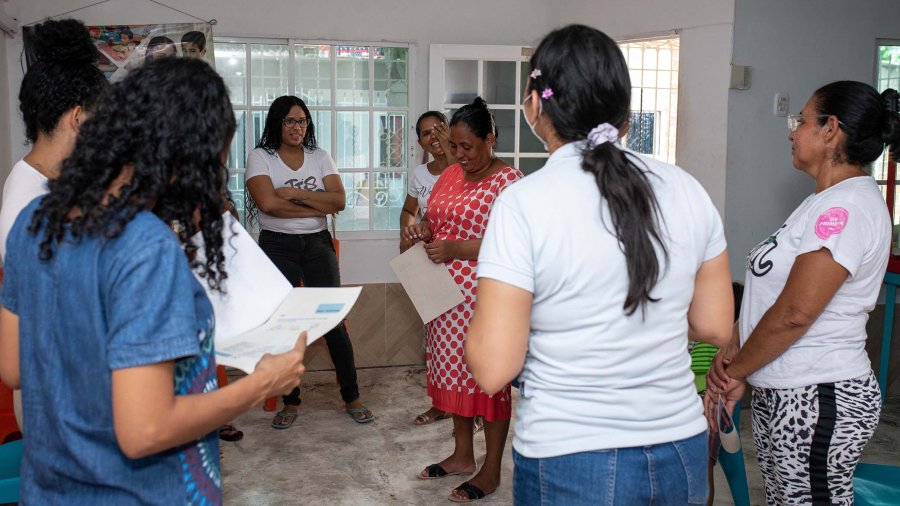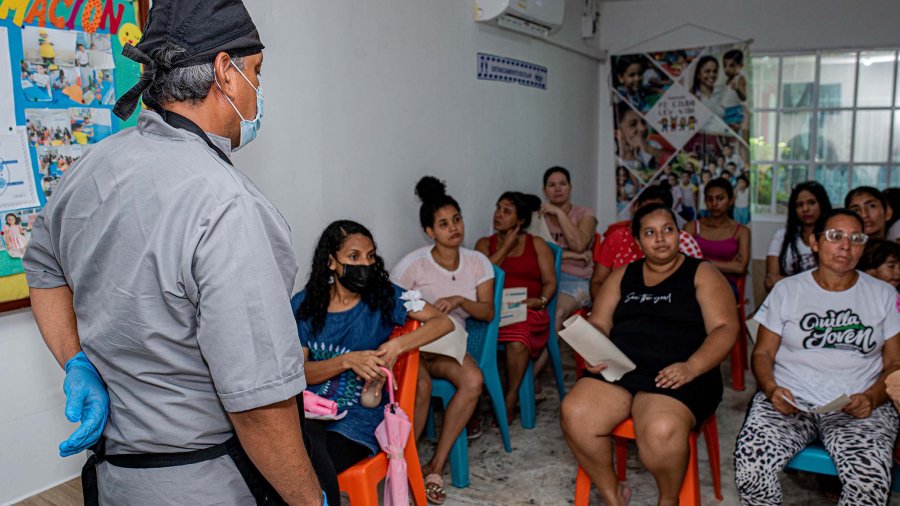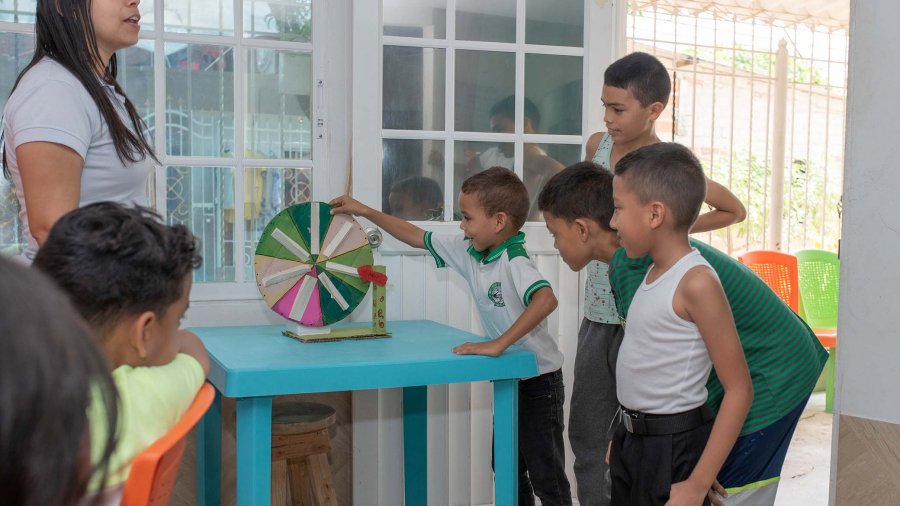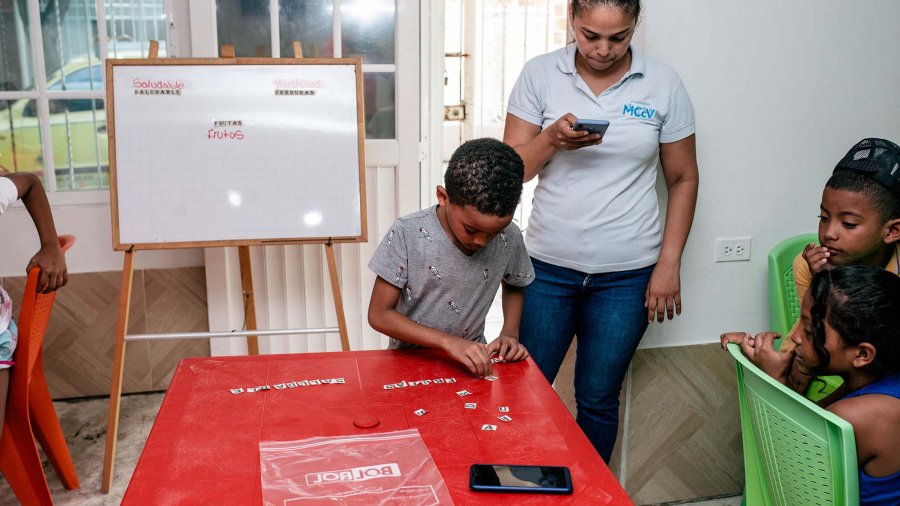Every Saturday at the Barranquilla location, the first activity with the children is focused on educating them on the importance of punctuality through interactive activities and games. In this way, we promote values such as responsibility, respect, commitment, and the development of healthy habits that allow them to arrive on time. We also make sure to give a shout out to the first children who arrive on time at 8:00am, when the day’s activities begin.
RED JOVEN PROFAMILIA Visit
This Saturday we received a visit from a young adult member of the RED JOVEN PROFAMILIA program, and we developed activities with the goal of defending and promoting Sexual and Reproductive Rights among the children in the Barranquilla location. These lessons are important to encourage awareness, sex education and the use of contraceptives, aside from preventing teenage pregnancy and the spread of sexually transmitted diseases.
Root-to-Stem Cooking Habits
This week in the Soledad location, we worked with the families involved in the Food & Health project on reducing waste in the kitchen by using scraps, peels and seeds, checking our pantry, monitoring the state of our foods, keeping expiration and best by dates in mind in order to get the most nutrients possible out of our food.
At the end of the workshop we chose a few vegetables that are almost always in the pantry to make a salad using these root-to-stem cooking tips, counting on the participation of the parents in the preparation process.
Learning to Resolve Conflicts through Assertive Communication
This Thursday in the Soledad location, we developed the Educating at Home project with the parents, where we tackled possible conflict situations within the family dynamic and how to resolve them using assertive communication. Then, towards the end of the workshop we did a communication exercise with the whole group.
The impact on the community continues!
This Saturday, the Environmental Guardians in the Lipaya location went out into the community to promote water conservation, offering informative tips and explaining the importance of this for everyone.
Love and respect agreements
This Saturday the youth group in the Barranquilla location engaged in activities to develop strategies that encouraged conflict resolution as a way to promote respect and healthy coexistence among the teenagers. This, along with activities in the psychosocial education kit related to understanding the origin of a conflict and how to prevent further conflict.
Food roulette
In the Soledad location we taught the boys and girls of the Food & Health program about the food groups through an educational roulette. This was a practical and fun activity that involved having them spin the roulette and call out a food that belonged to the corresponding group. As they played, the children learned about the importance of including foods from each group in one’s daily meals, keeping in mind the portion size relative to age in order to maintain a balanced diet.
Community campaign for the prevention of Dengue
Through an informative campaign this Saturday, the Environmental Guardians group walked throughout the streets of the Lipaya neighborhood to promote the prevention of Dengue, explaining what it is, how it is transmitted, and how to prevent it. This way, aside from sharing an important message, the children strengthened their assertive communication, teamwork and confidence.
Play on words with a focus on healthy nutrition
This week in the Soledad location we carried out our nutritional activity through a fun word game where the children had to create words in the least amount of time possible. Through these activities the children not only learn about healthy nutrition, but they also develop their language skills like writing and spelling.










